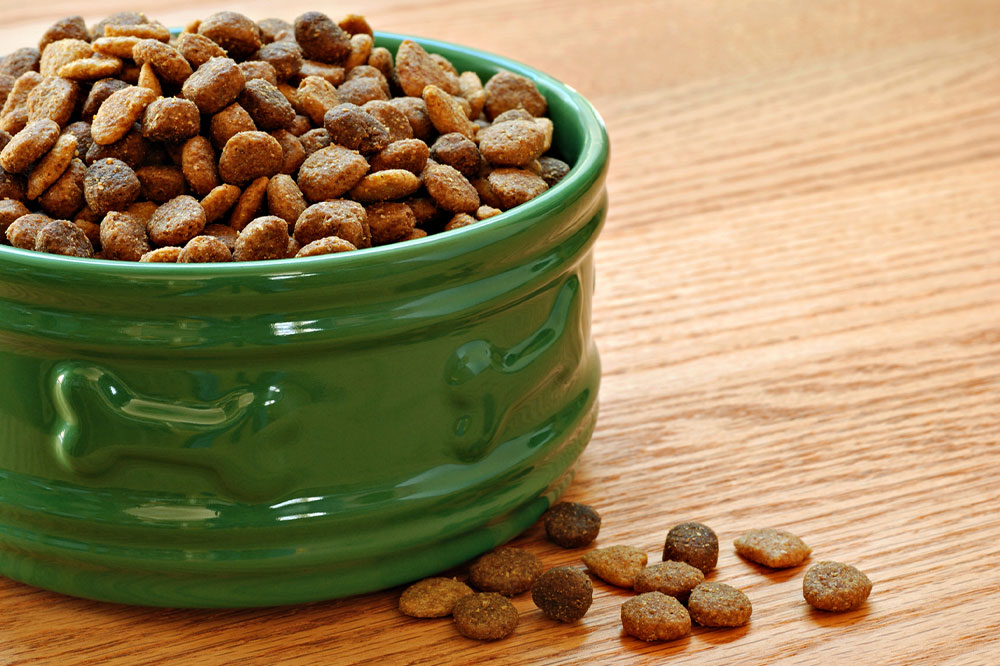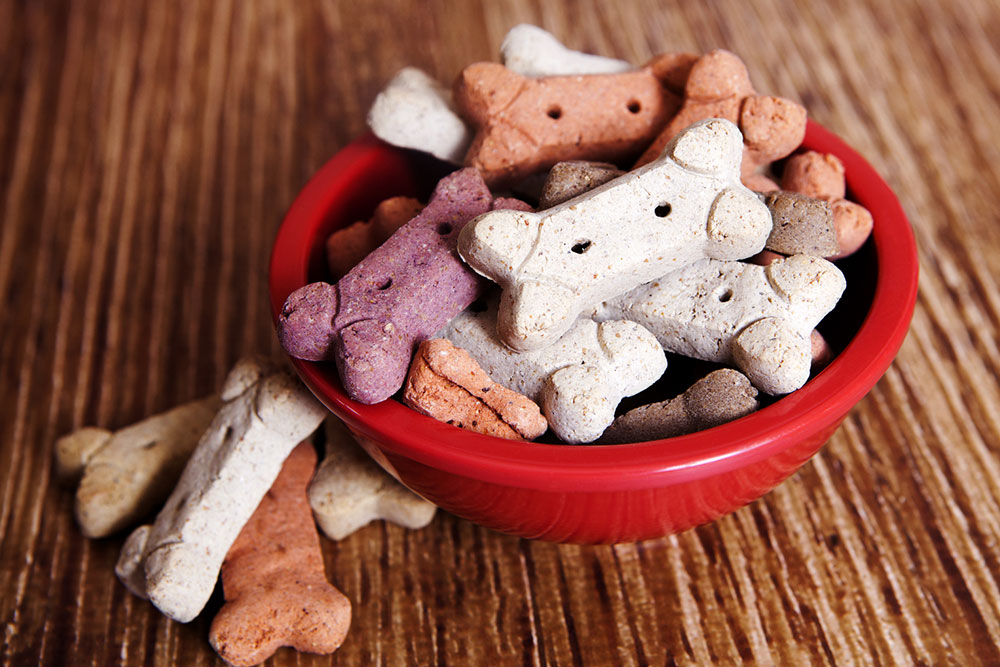Essential Guide to Choosing the Best Dog Food for Your Pet's Health
Discover comprehensive tips for selecting the optimal dog food to promote your pet's health. Learn how to assess nutritional content, ingredient quality, breed-specific needs, and dietary variety. This guide helps pet owners make informed decisions, ensuring their dogs stay healthy and happy through proper nutrition at every life stage. Expert advice and practical recommendations support a long, vibrant life for your furry friends.

Essential Guide to Choosing the Best Dog Food for Your Pet's Health
Providing your dog with the proper nutrition is a fundamental aspect of responsible pet ownership. Selecting the right dog food not only supports their physical health but also ensures a shiny coat, strong muscles, and overall vitality. However, the vast array of available dog foods can make it challenging to find the perfect fit for your furry friend. Every dog has unique dietary needs influenced by breed, age, health status, and activity level. Consequently, understanding these factors and making informed choices are crucial steps toward promoting your dog’s longevity and well-being. In this comprehensive guide, we will explore essential tips and expert advice to help you select the most suitable dog food. From nutritional content to ingredient quality and feeding guidelines, everything you need is covered here. Whether you are a new pet owner or looking to refine your current feeding routine, this article offers valuable insights.
Determine Your Dog’s Breed and Size
One of the most important factors when choosing dog food is understanding your dog's breed and size. Different breeds have varying nutritional requirements due to disparities in metabolism, size, and physiological needs. For example, large breeds like Great Danes require food that supports joint health and controlled calorie intake to prevent obesity, whereas small breeds like Chihuahuas often need calorie-dense foods to meet their energy demands. Knowing your dog’s breed helps in selecting a diet that promotes proper growth, maintains a healthy weight, and supports overall health. Additionally, certain breeds are predisposed to specific health issues, so selecting foods that address these concerns can significantly improve their quality of life. Consulting with veterinary professionals can provide personalized recommendations based on breed-specific needs.
Prioritize Nutritional Value
When choosing dog food, prioritize products that deliver high nutritional value. While taste and smell are important factors, they should never compromise nutritional content. A balanced diet for dogs includes optimal levels of proteins, fats, carbohydrates, vitamins, and minerals that support overall health and vitality. Look for food labels that specify adherence to nutritional standards established by reputable organizations like the Association of American Feed Control Officials (AAFCO). High-quality dog foods typically contain real meat, fish, or poultry as the primary ingredient, alongside wholesome grains and vegetables. Avoid products with artificial preservatives, flavorings, fillers, and by-products, as these can negatively impact your pet’s health over time. Proper nourishment ensures effective digestion, strong immune function, and healthy skin and coat.
Seek Professional Advice from Veterinarians
Consulting a veterinarian or pet nutritionist is invaluable when selecting the right dog food. These experts can assess your dog’s specific health condition, allergies, and dietary restrictions, providing tailored recommendations. For dogs with allergies or sensitivities, skin tests and blood work can help identify specific ingredients to avoid. Veterinarians can also advise on the ideal feeding regimen, portion sizes, and supplement needs to support your pet’s unique requirements. Relying on professional guidance ensures that you make well-informed decisions, ultimately leading to better health outcomes for your dog. Remember, every dog is different, and a personalized approach is key to optimal nutrition.
Feeding Based on Age and Life Stage
Age is a critical factor when choosing dog food. Puppies, adult dogs, and seniors all have different nutritional needs. Puppy food is formulated to promote rapid growth and development, offering higher levels of calories, protein, and essential nutrients. Feeding adult dogs with puppy food can hinder proper growth and may contribute to obesity, while giving senior dogs food designed for their age helps maintain mobility, reduce inflammation, and support joint health. Choosing age-appropriate foods ensures your dog receives the right nutrients at every stage of life and can prevent health issues related to poor nutrition. Read labels carefully to select foods labeled specifically for your pet’s age group.
Choosing the Right Food Type
Dog food comes in various formats, primarily dry kibble, semi-moist, and canned varieties. Selecting the best type depends on your dog’s preferences, dietary needs, and your convenience. Each format has its own benefits and drawbacks. Dry kibble is convenient, economical, and promotes dental health by reducing plaque buildup, making it a popular choice among pet owners. Semi-moist foods offer a more palatable texture but often contain added sugars and preservatives. Canned foods tend to be more appetizing and easier to digest, especially for elderly or ill dogs, but they are generally more expensive and can contribute to weight gain if not properly portioned. Veterinarians often recommend dry kibble as the primary diet due to its balanced nutritional profile, with occasional inclusion of canned foods or treats to add variety.
Assess Ingredient Quality and Composition
The quality of ingredients in dog food directly impacts your pet’s health. High-quality ingredients like real meat, eggs, and vegetables are easier to digest and contain essential nutrients necessary for growth and immune function. Look for foods where the first few ingredients list recognizable whole foods. Avoid products with excessive fillers like corn gluten, soy, or by-products which provide little nutritional benefit and can cause allergies or digestive issues. Organic and non-GMO ingredients are preferable if your budget allows, offering peace of mind about safety and purity. Ingredient labels also help you avoid harmful additives such as artificial colors, flavors, and preservatives. Choosing nutrient-rich, high-quality ingredients ensures your dog remains healthy, energetic, and happy.
Opt for Commercial Dog Foods with Balanced Nutrition
Commercial dog foods are formulated to meet strict nutritional standards, making them a convenient and reliable choice for busy pet owners. Reputable brands produce formulas that contain all essential nutrients, including vitamins like E and minerals necessary for immune support. These products undergo rigorous testing to ensure quality and safety, reducing the risk of nutritional deficiencies or harmful contaminants. Avoid generic or unbranded options to prevent exposure to low-quality ingredients. Regularly choosing commercial foods ensures your dog receives a consistent supply of balanced nutrition, which supports overall health, longevity, and disease prevention. Always check for quality certifications and ingredient transparency before purchasing.
Monitor Calorie Intake and Weight Management
Maintaining a healthy weight is crucial for your dog’s overall health and longevity. Caloric needs vary depending on factors such as breed, age, activity level, and health status. Overfeeding can lead to obesity, increasing risks for diabetes, joint problems, and cardiovascular disease. Underfeeding, on the other hand, can cause malnutrition and weakness. Use feeding guidelines provided on the packaging as a starting point, and adjust portions based on your dog’s actual weight and body condition. For overweight dogs, opt for low-calorie, high-fiber foods that promote satiety and aid weight loss. Regular weigh-ins and body condition assessments can help you fine-tune the diet. Consult your veterinarian for personalized recommendations to keep your furry friend at an optimal weight.
Incorporate a Variety of Foods for a Balanced Diet
While consistency in feeding is important, including a variety of foods prevents nutritional gaps and keeps mealtime interesting for your dog. Incorporate fruits, vegetables, and different protein sources into their diet. Fruits like apples, bananas, and blueberries provide essential vitamins, antioxidants, and fiber. Vegetables such as carrots, spinach, cauliflower, and broccoli supply vital nutrients for overall health. Cooked, unseasoned meats including chicken, turkey, salmon, and lean beef can serve as excellent protein sources that enhance flavor and nutritional diversity. Introducing different textures and flavors can stimulate your dog’s appetite and provide a more complete nutritional profile. Always introduce new foods gradually and consult with your veterinarian to ensure compatibility and safety. A well-rounded diet promotes better digestion, stronger immune health, and overall vitality.
Incorporate fruits like apples, bananas, and blueberries for vitamins and antioxidants.
Add vegetables such as carrots, cauliflower, broccoli, and spinach to provide essential nutrients.
Include unseasoned cooked meats and eggs, including chicken, salmon, turkey, and beef, for a protein boost.





